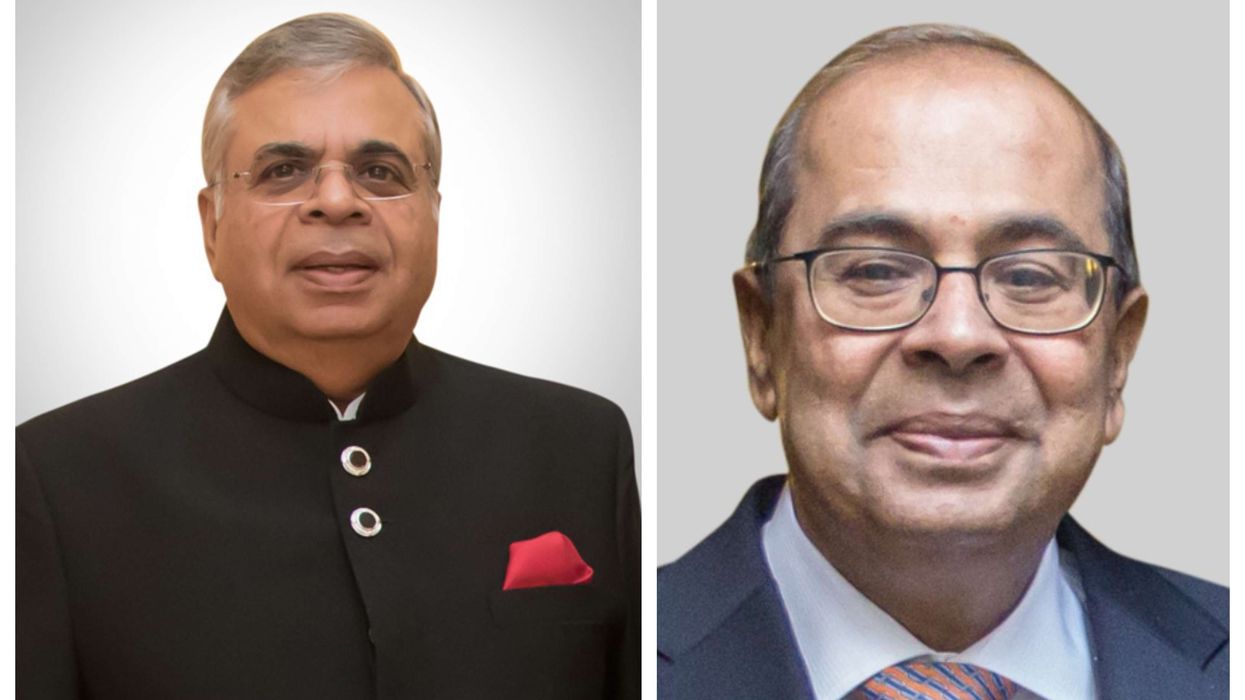Star India all-rounder Hardik Pandya feels he has developed the ability to absorb pressure and doesn't mind playing the anchor role that the great Mahendra Singh Dhoni played for the team.
The 29-year-old has always been known for his batting pyrotechnics but says he has now learnt to take the back seat and anchor the innings, something which master chaser Dhoni did in the fag end of his international career.
"See, to be honest, I've always enjoyed hitting sixes, but I have to evolve and that is life," the stand-in T20 skipper said during the press conference after India sealed the T20 series against New Zealand 2-1.
"I have to take the other part where I've always believed in partnerships. I want to give my team and the other person more calmness and the assurance that at least I'm there.
"I've played more games than any of those guys out there. So, I've known the experience and more than the experience part, it's where I've batted, and I've learnt how to accept pressure and I've learnt how to kind of swallow the pressure and kind of make sure the team and everything is calm," Hardik added.
Dhoni is known for his calm demeanour and Hardik feels now it is his responsibility to step into the legendary wicketkeeper's shoes as a batter and he is ready to sacrifice his strike-rate to play that role.
"In that way, maybe I have to get my strike rate down or... Taking new opportunities or taking new roles is (something) I've always looked forward to. I don't mind coming in and playing the role which somewhere down the line Maahi (Dhoni) used to play," he said.
Hardik has scored 1271 runs at a strike-rate of 142.17 in 87 T20Is.
"I think at that time, I was young, and I was hitting all around the park, but now since he has gone, all of a sudden that responsibility... It has just naturally come to me, and I don't mind (doing it). We're getting the result we want and it's okay."
During the third T20I against New Zealand, Hardik did just that, allowing the in-form Shubman Gill (126) to take the attack to the opposition as India posted a massive 234 for 4 and then bowled out NZ for 66 for a 168-run win.
Hardik -- The new ball bowler
With pace spearhead Jasprit Bumrah nursing an injury, Hardik has backed himself to bowl more with the new ball, having bowled 12 overs in the powerplay, conceding 86 runs for two wickets this home season.
"I had to bowl with the new ball (in T20Is) because Arshdeep (Singh)... I don't want any new guy to come and have that difficult role of (bowling first up with the new ball) because if they're put under pressure, then we're chasing the game," Hardik said.
"So, I've always been (like) leading from the front and I've been working on my new-ball skills, which is helping me."
He has taken 69 wickets at 26.43 average in 87 T20Is.
"My focus is on white-ball cricket now"
Hardik, who last played a Test in August, 2018, said his priority now is white-ball cricket with the ODI World Cup scheduled in India for October-November this year and next year's T20 World Cup in the Caribbean.
"I will come (back) when I feel (it's) the right time to play Test-match cricket," said Hardik, who has not played any red-ball cricket since undergoing back surgery in 2019.
"Right now, I'm going to focus on white-ball cricket, which is important, and if time is right and body is fine, I'll give (the long format] a try."
"Gill has game to play all formats"
Impressed with Gill's rise as an all format player, Hardik said: "I always felt that he has the style and technique to play all the formats and it was not surprising for me.
"The effortless batting that he can do, not many can. It means a lot for him, as a youngster to play all formats adds a new dimension to the game."
(PTI)













